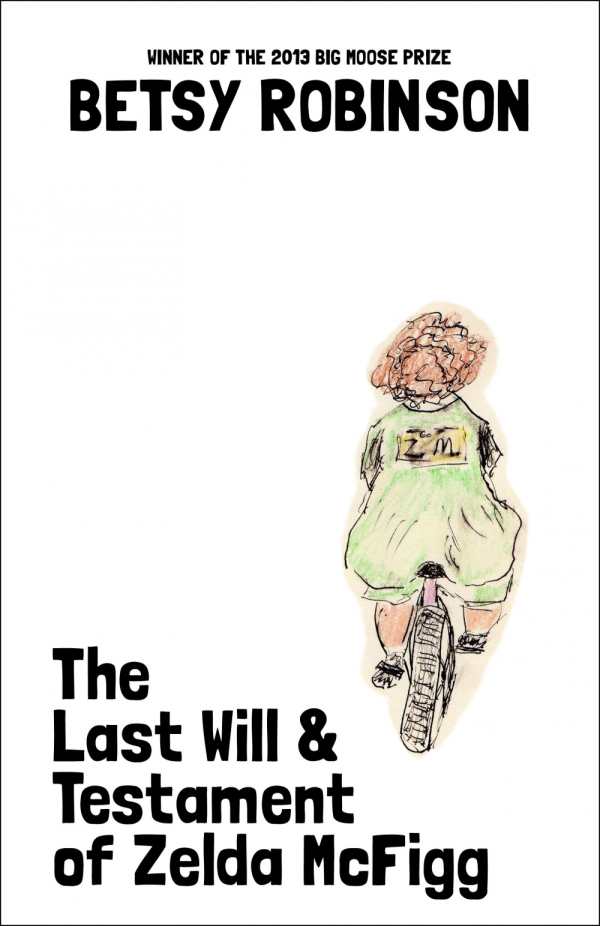The Last Will and Testament of Zelda McFigg
Zelda’s tale brims with good humor and inventiveness.
Playwright Betsy Robinson returns with a comedic novel about a wayward teacher who’s always one step away from grandeur, at least in her own mind. The Last Will and Testament of Zelda McFigg is a quirky story of midlife misadventures.
The novel opens on a teenage Zelda whose alcoholic mother has forced her to untether from her life. Zelda is smelly, short, and overweight, but she knows that a beautiful existence awaits her somewhere.
Zelda passes years in the company of those on society’s fringes: a beat lyricist, a pixie-like addict, a playwright called Rainbow. She scrapes by emotionally by mocking the foibles of those around her, demeaning them as “narcissistic sluts” and assuming a superior posture. This results in a heroine who’s not always as likable as she believes herself to be.
Eventually, Zelda ends up in far-north Moose County, where she finagles her way into a position as a middle-school English teacher. She forms an immediate bond with Donny, an ugly duckling whom she nurtures toward self-realization. In time, Zelda comes to see her future as wrapped up in his.
The novel uncomfortably straddles the line between what Zelda wants to be true and what actually is. It is surprising, for example, that this good-hearted teacher is so quick to forgive Donny’s decision to hide his uncle’s rotting corpse from authorities. It is equally difficult to believe that Donny’s sub-par academic commitments result in a scholarship to Yale.
Ultimately, none of the novel’s characters are able to match Zelda’s self-estimated virtue, even given her propensity for plagiarism and the occasional B&E. Her continual disappointment and sense of undue invisibility leads her to author The Last Will and Testament, a cheerful but indignant attempt to set the record straight.
Robinson’s devotion to maintaining levity often comes at the expense of a fleshed-out story. The introductions of characters like Rainbow sometimes begin and conclude within the span of a page, and it becomes difficult not to regard them as superfluous. Internal writings receive accolades but prove underwhelming when reproduced. The text trades between two fonts throughout, for no discernible reason. Ultimately, such qualities, coupled with overblown plot turns and inflated secondary characters, hinder the book’s ability to charm. Overall, though, this book is a lighthearted and fun read.
Reviewed by
Michelle Anne Schingler
Disclosure: This article is not an endorsement, but a review. The publisher of this book provided free copies of the book to have their book reviewed by a professional reviewer. No fee was paid by the publisher for this review. Foreword Reviews only recommends books that we love. Foreword Magazine, Inc. is disclosing this in accordance with the Federal Trade Commission’s 16 CFR, Part 255.

